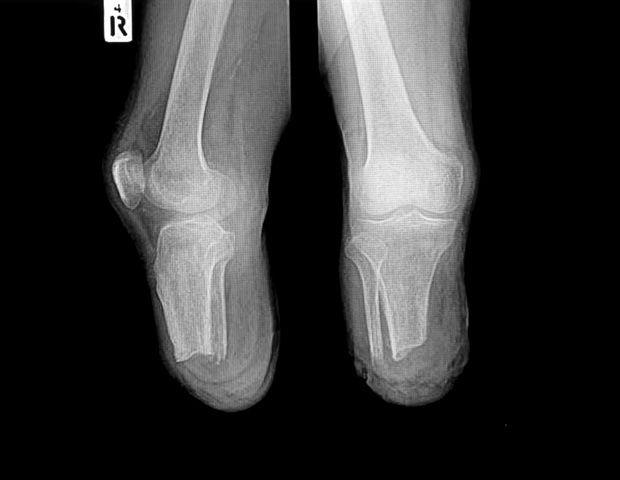AI Uncovers Racial Disparities in Organ Transplant Allocation
2 Sources
2 Sources
[1]
MIT and Mass General Hospital researchers find disparities in organ allocation
Caption: The first successful organ transplant was less than 75 years ago. Despite significant progress since then, many patients still fall through the gaps of what remains a complicated procedure. In 1954, the world's first successful organ transplant took place at Brigham and Women's Hospital, in the form of a kidney donated from one twin to the other. At the time, a group of doctors and scientists had correctly theorized that the recipient's antibodies were unlikely to reject an organ from an identical twin. One Nobel Prize and a few decades later, advancements in immune-suppressing drugs increased the viability of and demand for organ transplants. Today, over 1 million organ transplants have been performed in the United States, more than any other country in the world. The impressive scale of this achievement was made possible due to advances in organ matching systems: The first computer-based organ matching system was released in 1977. Despite continued innovation in computing, medicine, and matching technology over the years, over 100,000 people in the U.S. are currently on the national transplant waiting list and 13 people die each day waiting for an organ transplant. Most computational research in organ allocation is focused on the initial stages, when waitlisted patients are being prioritized for organ transplants. In a new paper presented at ACM Conference on Fairness, Accountability, and Transparency (FAccT) in Athens, Greece, researchers from MIT and Massachusetts General Hospital focused on the final, less-studied stage: when an offer is made and the physician at the transplant center decides on behalf of the patient whether to accept or reject the offered organ. "I don't think we were terribly surprised, but we were obviously disappointed," co-first author and recent MIT PhD graduate Hammaad Adam says. Using computational models to analyze transplantation data from over 160,000 transplant candidates in the Scientific Registry of Transplant Recipients (SRTR) between 2010 and 2020, the researchers found that physicians were overall less likely to accept liver and lung offers on behalf of Black candidates, resulting in additional barriers for Black patients in the organ allocation process. For livers, Black patients had 7 percent lower odds of offer acceptance than white patients. When it came to lungs, the disparity became even larger, with 20 percent lower odds of having an offer acceptance than white patients with similar characteristics. The data don't necessarily point to clinician bias as the main influence. "The bigger takeaway is that even if there are factors that justify clinical decision-making, there could be clinical conditions that we didn't control for, that are more common for Black patients," Adam explains. If the wait-list fails to account for certain patterns in decision-making, they could create obstacles in the process even if the process itself is "unbiased." The researchers also point out that high variability in offer acceptance and risk tolerances among transplant centers is a potential factor complicating the decision-making process. Their FAccT paper references a 2020 paper published in JAMA Cardiology, which concluded that wait-list candidates listed at transplant centers with lower offer acceptance rates have a higher likelihood of mortality. Another key finding was that an offer was more likely to be accepted if the donor and candidate were of the same race. The paper describes this trend as "concerning," given the historical inequities in organ procurement that have limited donation from racial and ethnic minority groups. Previous work from Adam and his collaborators has aimed to address this gap. Last year, they compiled and released Organ Retrieval and Collection of Health Information for Donation (ORCHID), the first multi-center dataset describing the performance of organ procurement organizations (OPOs). ORCHID contains 10 years' worth of OPO data, and is intended to facilitate research that addresses bias in organ procurement. "Being able to do good work in this field takes time," says Adam, who notes that the entirety of the organ allocation project took years to complete. To his knowledge, only one paper to date studies the association between offer acceptance and race. While the bureaucratic and highly interdisciplinary nature of clinical AI projects can dissuade computer science graduate students from pursuing them, Adam committed to the project for the duration of his PhD in the lab of associate professor of electrical engineering Marzyeh Ghassemi, an affiliate of the MIT Jameel Clinic and the Institute of Medical Engineering and Sciences. To graduate students interested in pursuing clinical AI research projects, Adam recommends that they "free [themselves] from the cycle of publishing every four months." "I found it freeing, to be honest -- it's OK if these collaborations take a while," he says. "It's hard to avoid that. I made the conscious choice a few years ago and I was happy doing that work." This work was supported with funding from the MIT Jameel Clinic. This research was supported, in part, by Takeda Development Center Americas Inc. (successor in interest to Millennium Pharmaceuticals Inc.), an NIH Ruth L. Kirschstein National Research Service Award, a CIFAR AI Chair at the Vector Institute, and by the National Institutes of Health.
[2]
Researchers find disparities in organ allocation
In 1954, the world's first successful organ transplant took place at Brigham and Women's Hospital, in the form of a kidney donated from one twin to the other. At the time, a group of doctors and scientists had correctly theorized that the recipient's antibodies were unlikely to reject an organ from an identical twin. One Nobel Prize and a few decades later, advancements in immunosuppressing drugs increased the viability of and demand for organ transplants. Today, over 1 million organ transplants have been performed in the United States, more than any other country in the world. The impressive scale of this achievement was made possible due to advances in organ matching systems: The first computer-based organ matching system was released in 1977. Despite continued innovation in computing, medicine, and matching technology over the years, more than 100,000 people in the U.S. are currently on the national transplant waiting list and 13 people die each day waiting for an organ transplant. Most computational research in organ allocation is focused on the initial stages, when waitlisted patients are being prioritized for organ transplants. In a new paper presented at the ACM Conference on Fairness, Accountability, and Transparency (FAccT 2025) in Athens, Greece, researchers from MIT and Massachusetts General Hospital focused on the final, less-studied stage: when an offer is made and the physician at the transplant center decides on behalf of the patient whether to accept or reject the offered organ. "I don't think we were terribly surprised, but we were obviously disappointed," co-first author and recent MIT Ph.D. graduate Hammaad Adam says. Using computational models to analyze transplantation data from more than 160,000 transplant candidates in the Scientific Registry of Transplant Recipients (SRTR) between 2010 and 2020, the researchers found that physicians were overall less likely to accept liver and lung offers on behalf of Black candidates, resulting in additional barriers for Black patients in the organ allocation process. For livers, Black patients had 7% lower odds of offer acceptance than white patients. When it came to lungs, the disparity became even larger, with 20% lower odds of having an offer acceptance than white patients with similar characteristics. The data don't necessarily point to clinician bias as the main influence. "The bigger takeaway is that even if there are factors that justify clinical decision-making, there could be clinical conditions that we didn't control for, that are more common for Black patients," Adam explains. If the wait-list fails to account for certain patterns in decision-making, they could create obstacles in the process even if the process itself is "unbiased." The researchers also point out that high variability in offer acceptance and risk tolerances among transplant centers is a potential factor complicating the decision-making process. Their FAccT paper references a 2020 paper published in JAMA Cardiology, which concluded that wait-list candidates listed at transplant centers with lower offer acceptance rates have a higher likelihood of mortality. Another key finding was that an offer was more likely to be accepted if the donor and candidate were of the same race. The paper describes this trend as "concerning," given the historical inequities in organ procurement that have limited donation from racial and ethnic minority groups. Previous work from Adam and his collaborators has aimed to address this gap. Last year, they compiled and released Organ Retrieval and Collection of Health Information for Donation (ORCHID), the first multi-center dataset describing the performance of organ procurement organizations (OPOs). ORCHID contains 10 years' worth of OPO data, and is intended to facilitate research that addresses bias in organ procurement. "Being able to do good work in this field takes time," says Adam, who notes that the entirety of the organ allocation project took years to complete. To his knowledge, only one paper to date studies the association between offer acceptance and race. While the bureaucratic and highly interdisciplinary nature of clinical AI projects can dissuade computer science graduate students from pursuing them, Adam committed to the project for the duration of his Ph.D. in the lab of associate professor of electrical engineering Marzyeh Ghassemi, an affiliate of the MIT Jameel Clinic and the Institute of Medical Engineering and Sciences. To graduate students interested in pursuing clinical AI research projects, Adam recommends that they "free [themselves] from the cycle of publishing every four months." "I found it freeing, to be honest -- it's OK if these collaborations take a while," he says. "It's hard to avoid that. I made the conscious choice a few years ago and I was happy doing that work."
Share
Share
Copy Link
MIT and Mass General Hospital researchers use AI to analyze organ transplant data, revealing disparities in acceptance rates for Black patients and highlighting the potential for AI in addressing healthcare inequities.
Background on Organ Transplantation
The field of organ transplantation has come a long way since the world's first successful transplant in 1954 at Brigham and Women's Hospital. Over the past seven decades, advancements in immunosuppressing drugs and organ matching systems have led to over 1 million organ transplants being performed in the United States alone
1
2
. However, despite these achievements, the demand for organs still far outweighs the supply, with over 100,000 people currently on the national transplant waiting list and 13 people dying each day while waiting for a transplant.AI-Powered Analysis Reveals Disparities

Source: MIT
Researchers from MIT and Massachusetts General Hospital have recently uncovered concerning disparities in the organ allocation process using advanced computational models. Their study, presented at the ACM Conference on Fairness, Accountability, and Transparency (FAccT) in Athens, Greece, focused on the final stage of organ allocation: when physicians decide whether to accept or reject an organ offer on behalf of a patient
1
2
.The team analyzed transplantation data from over 160,000 transplant candidates in the Scientific Registry of Transplant Recipients (SRTR) between 2010 and 2020. Their findings revealed that physicians were overall less likely to accept liver and lung offers for Black candidates, creating additional barriers in the organ allocation process
1
2
.Key Findings

Source: Medical Xpress
- For liver transplants, Black patients had 7% lower odds of offer acceptance compared to white patients
1
2
. - The disparity was even more pronounced for lung transplants, with Black patients having 20% lower odds of offer acceptance than white patients with similar characteristics
1
2
. - Offers were more likely to be accepted if the donor and candidate were of the same race, a trend described as "concerning" given historical inequities in organ procurement
1
2
.
Implications and Potential Factors
While the data doesn't necessarily point to clinician bias as the main influence, the researchers suggest that there could be clinical conditions more common among Black patients that aren't accounted for in the wait-list system
1
2
. This oversight could create obstacles in the process even if the system itself is designed to be unbiased.The study also highlighted the high variability in offer acceptance and risk tolerances among transplant centers as a potential complicating factor. A referenced 2020 paper in JAMA Cardiology concluded that patients listed at centers with lower offer acceptance rates have a higher likelihood of mortality
1
2
.Related Stories
Addressing the Gap with AI and Data
To address these disparities, the researchers have been working on innovative solutions. Last year, they released the Organ Retrieval and Collection of Health Information for Donation (ORCHID) dataset, the first multi-center dataset describing the performance of organ procurement organizations (OPOs)
1
2
. This 10-year dataset aims to facilitate research addressing bias in organ procurement.The Importance of Long-Term Commitment in Clinical AI Research
Hammaad Adam, co-first author and recent MIT PhD graduate, emphasized the importance of long-term commitment in clinical AI research. Despite the challenges posed by the bureaucratic and interdisciplinary nature of such projects, Adam dedicated his entire PhD to this work
1
2
.He advises graduate students interested in clinical AI research to free themselves from the pressure of frequent publishing cycles, stating, "It's OK if these collaborations take a while. I made the conscious choice a few years ago and I was happy doing that work"
1
2
.This research demonstrates the potential of AI and data analysis in uncovering and addressing healthcare disparities, paving the way for more equitable organ allocation systems in the future.
References
Summarized by
Navi
[2]
Related Stories
Recent Highlights
1
ByteDance's Seedance 2.0 AI video generator triggers copyright infringement battle with Hollywood
Policy and Regulation

2
Demis Hassabis predicts AGI in 5-8 years, sees new golden era transforming medicine and science
Technology

3
Nvidia and Meta forge massive chip deal as computing power demands reshape AI infrastructure
Technology








